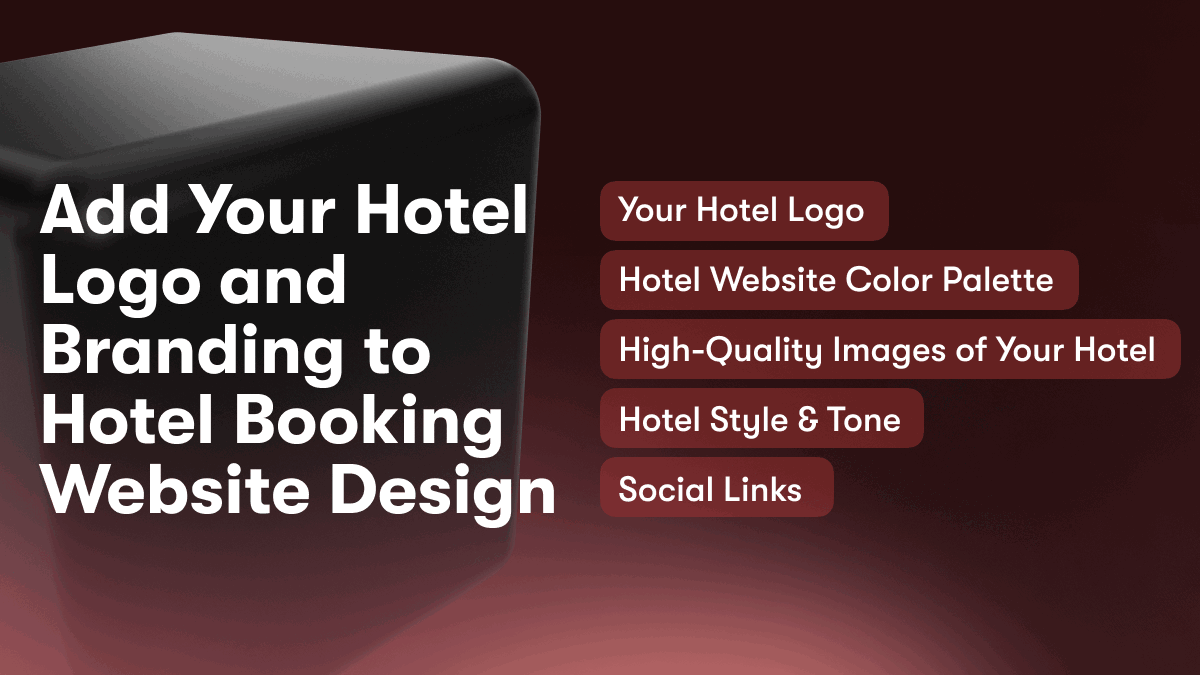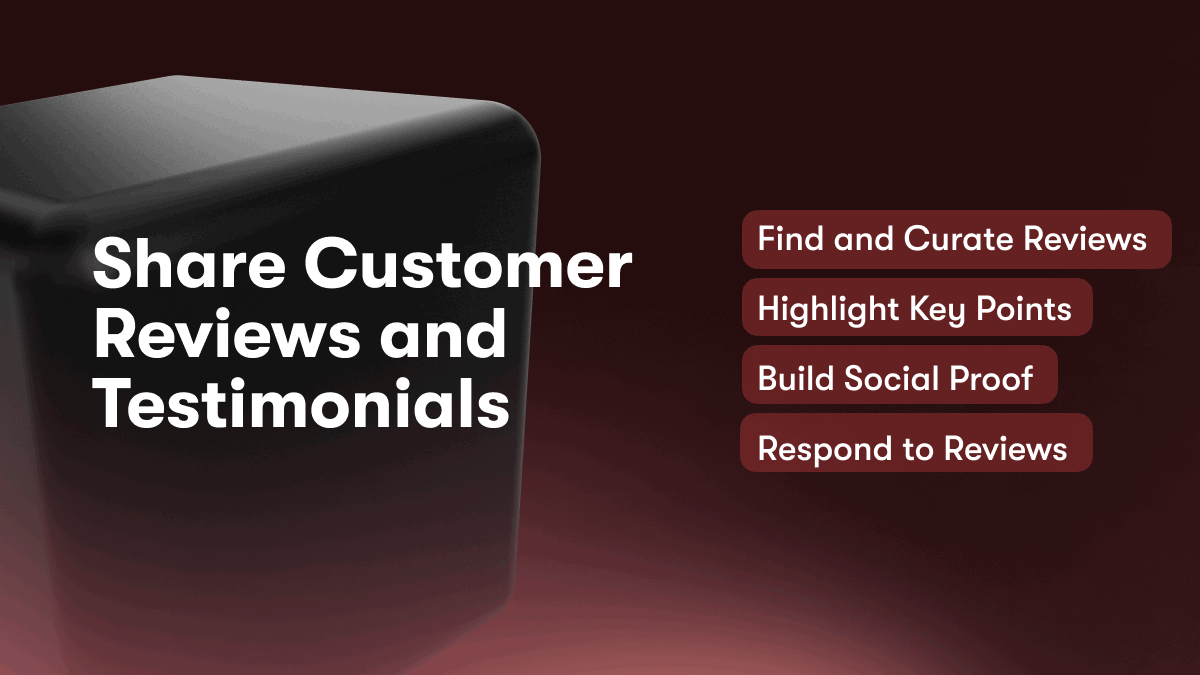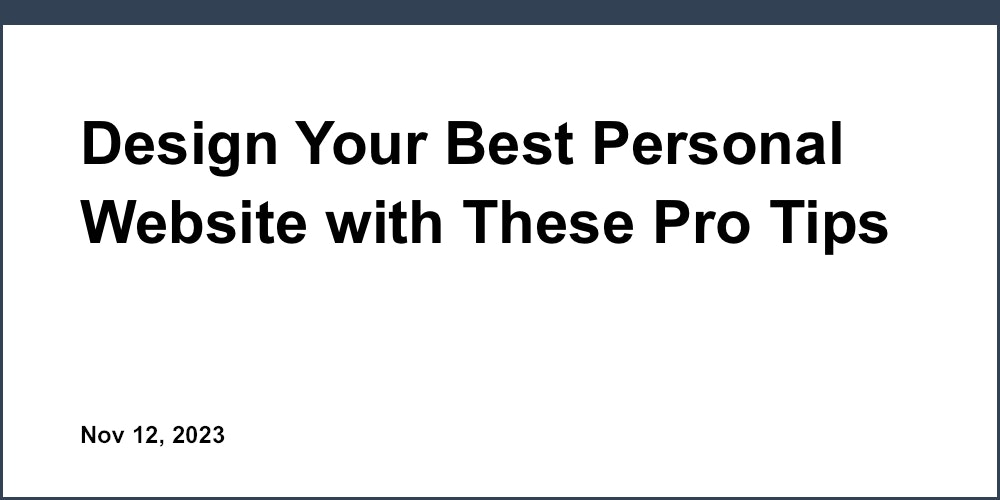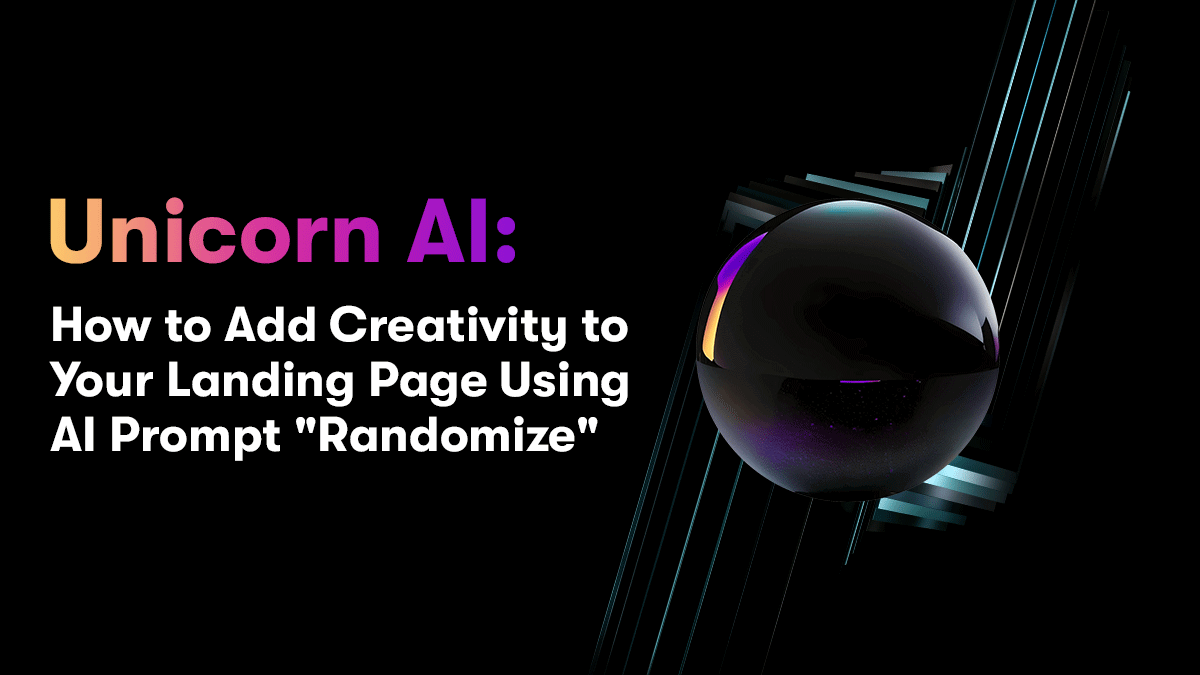As a hotelier, you want to make it as easy as possible for customers to book rooms on your website. A dedicated landing page for your booking process is key. With the right tools, you can build an attractive yet simple booking landing page in minutes. Rather than relying on a developer to design and code a custom page, use a drag and drop website builder. If you're looking for a reliable website builder for your tour operator business, check out our article on the best web design companies for tour operators.
Why You Need a Dedicated Hotel Booking Landing Page
A dedicated hotel booking landing page is essential for converting visitors into customers. Here are a few reasons why:
Increased Conversion Rates
A landing page tailored to your hotel property allows you to focus the message and call-to-action on booking a stay. By highlighting your rooms, amenities, and local attractions, you make it easy for visitors to imagine themselves enjoying a getaway at your location. Calls-to-action like "Book Now" or "Check Rates and Availability" entice visitors to make a reservation.
Better Search Engine Optimization
A landing page optimized for your hotel name, location, and other keywords relevant to your property helps search engines understand your business. This can improve your rankings in search results for terms like "hotels in [location]" or "[hotel name] booking." The higher you rank, the more visibility you gain.
Capture Visitor Information
An effective landing page encourages visitors to provide their contact information by offering something of value like a coupon, newsletter, or destination guide. Collecting emails and physical addresses allows you to build your mailing list and reach out to potential guests with special offers and promotions to generate future bookings.
Simplified User Experience
A dedicated landing page provides a streamlined experience for visitors looking to book a room at your hotel. By removing navigation to other parts of your website, you reduce distractions and make it easy to find and act on the most relevant information - your available rooms and rates. A simple, clutter-free design is key.
With some time and testing, an optimized landing page can become one of your most valuable marketing tools for attracting new guests and increasing revenue for your hotel.
How to Choose the Right Page Builder for Your Hotel Booking Website Design
When it comes to selecting a page builder for your hotel booking website design, there are several critical factors to take into account. One appealing choice is Unicorn Platform, a platform that offers an easy yet robust builder accessible to anyone.
Unicorn Platform provides a collection of professional and brand-consistent templates as a starting point, allowing you to fully tailor the design to harmonize with the unique aesthetics of your hotel. Furthermore, Unicorn Platform seamlessly integrates with leading booking engines, including Booking.com, Expedia, or even your proprietary system, enabling your website visitors to effortlessly check rates, explore room types, choose dates, and make reservations directly through your site.
Unicorn Platform also ensures that your page designs are fully responsive, catering to various devices such as mobile phones, tablets, and desktops. Moreover, it offers built-in analytics, enabling you to monitor essential metrics like page views, bounce rates, booking conversions, and more. For additional options in this domain, you can refer to this article on the Easy Conference and Seminar Landing Page Builder.
By evaluating page builders based on these critical factors, you can choose a solution to quickly and easily build a high-performing hotel booking landing page. With the right page builder handling the technical aspects, you can focus on showcasing your hotel's unique experiences.
For those looking for a no-coding solution, Unicorn Platform is a great option to consider. Their drag and drop builder and pre-designed templates allow for easy creation of professional websites without needing technical skills, making it a perfect fit for those looking to quickly build a landing page for their hotel booking website. Check out their article on no-coding skills needed to build landing pages visually to learn more.
Using Unicorn Platform to Design Your Hotel Booking Landing Page
To design an effective hotel booking landing page using the Unicorn Platform, follow these steps:
Select a Template
Unicorn Platform offers several customizable templates for hotel booking websites. Choose a template that suits your brand and style. Some recommended options include:
- Hotel Luxury - Elegant template with large hero image. Ideal for upscale hotels.
- Resort Escape - Tropical-themed template with palm trees and beach imagery. Perfect for island resorts.
- City Lights - Modern template with cityscape graphics. Great for hotels in urban destinations.
Customize the Page Sections
Every template has sections for key landing page elements like:
- Hero Image - Select an eye-catching photo of your hotel property or location. You can also include promotional text or your hotel logo.
- About Section - Give an overview of your hotel amenities, services, and accommodations. Mention your star rating, number of rooms, and any awards or certifications.
- Photo Gallery - Add images of your guest rooms, pool, restaurant, lobby, and other facilities. This gives visitors a visual tour of what your hotel offers.
- Contact Form - Include a contact form so visitors can get in touch with questions or booking inquiries. Be sure to list your hotel's phone number, email, and physical address as well.
Set Up Your Booking Engine
The booking engine allows visitors to check room rates, see availability, and make reservations directly on your website. Unicorn Platform integrates with several major booking engines like Booking.com, Expedia, and Hotelbeds. Choose a provider, create your account, and connect it to your Unicorn website. Their API will automatically sync your room types, rates, and occupancy to your live landing page.
Launch and Promote Your Page
Once your landing page is ready, launch it and start promoting to attract visitors and new bookings. Share your page on social media, partner with influencers in your area, and optimize for search engines by including keywords like “hotel name + destination.” Track key metrics like page views, contact form submissions, and direct bookings to see how customers are engaging with your new landing page. Make improvements as needed to maximize performance.
With some time and practice, you'll be designing high-converting hotel booking landing pages in minutes using Unicorn Platform. Let me know if you have any other questions!

Add Your Hotel Logo and Branding to Hotel Booking Website Design
To build an effective hotel booking landing page, you must incorporate your hotel’s branding to establish trust and recognition with visitors. Include the following elements:
Your Hotel Logo
Feature your hotel’s logo prominently at the top of the page. The logo is the face of your brand and helps visitors instantly recognize your hotel. For the best results, use your full-color logo and consider enlarging it or placing it on an eye-catching background.
Hotel Website Color Palette
Select colors from your hotel’s website to use throughout the landing page. The color palette creates visual consistency across your digital platforms and reinforces your brand in the minds of visitors. Use primary brand colors for elements like headlines, buttons, and accent details. For the overall page background, choose a complementary neutral shade.
High-Quality Images of Your Hotel
Include multiple professional photos of your hotel property, rooms, amenities, staff, locale, etc. Images give visitors a preview of the experience your hotel offers. For the top of the page, use a large, striking image that showcases what is most appealing about your hotel. Additional images placed throughout the content sections help to visually tell your hotel’s story.
Hotel Style & Tone
Maintain your hotel’s brand voice in the copy and content used on the landing page. If your brand is casual and friendly, have a conversational tone. If upscale and sophisticated, use a polished, professional style. The messaging should be consistent with how your hotel communicates on its official website and social media profiles. Repeat your hotel’s tagline or mission statement on the landing page for reinforcement.
Social Links
Include links to your hotel’s profiles on social media platforms like Facebook, Instagram, and Twitter. Social links give your hotel credibility and allow visitors to engage with your brand on other channels. Use social media icons that are consistent with your hotel’s web design. Place the links prominently at the top or bottom of the landing page for high visibility.
Following these best practices for adding your hotel’s branding to the landing page design will result in a cohesive digital experience for visitors and encourage them to book their stay with your hotel. Consistency and repetition across all platforms are key to establishing a memorable brand.
Showcase Photos of Your Hotel and Rooms
To convey the quality and amenities of your hotel to potential guests, include high-quality photos of your rooms, facilities, and public areas.
Room Photos
Feature photos of each room type you offer, including any available suites. Include shots of the room from different angles to give guests a sense of the full space. Capture details like furnishings, decor, lighting fixtures, and available amenities. For the best results, use professional photography and retouch the photos to optimize color and brightness.
Amenity and Common Area Photos
Showcase amenities like pools, gyms, restaurants, lounges, conference rooms, and recreation areas. Photos of lobbies, hallways, and building exteriors are also helpful for providing an overview of your property’s style and ambiance. These types of photos help demonstrate the experience and level of service guests can expect during their stay.
Room Views
If your hotel offers impressive views from its rooms or common areas, be sure to include photos capturing these vistas. Photos of scenic surroundings, city skylines, beach fronts or other points of interest help market your hotel’s location and setting. For beachfront or lakeside resorts, photos of the shoreline and available activities will entice leisure travelers.
Photo Captions
Provide captions for each photo to give context about what is shown. For room photos, include details like the room type, size, layout and available amenities. For amenity and common area photos, briefly describe the spaces and facilities pictured. For exterior shots, note details about the location, views and nearby points of interest. Captions allow you to highlight the most appealing parts of your photos and property.
Using high-quality photos with informative captions is key to creating an engaging hotel booking landing page. Showcasing the style, amenities, rooms, and setting of your property through photos helps convey your brand and the experience you offer guests. Combined with strong calls-to-action, your photos will capture interest and drive direct bookings.
Include a Reservation Form or Booking Button
To allow visitors to easily book a room at your hotel, you'll want to include a reservation or booking form directly on your landing page. There are a few options for adding a booking feature:
Reservation form
A simple reservation form allows guests to select their check-in and check-out dates, room type, and number of guests before submitting their information. You'll want to include:
- Check-in and check-out date pickers so visitors can easily select their desired stay dates.
- A dropdown to choose from available room types like standard, deluxe, or suite.
- Number of adults and children fields to capture the total guests.
- Name, email, phone number, and any other contact information you require.
Upon submitting the form, the information should be forwarded to your booking system to complete the reservation. Be sure to confirm the reservation details with the guest via email shortly after they book.
Booking button
For a more streamlined experience, you can include a prominent "Book Now" or "Reserve" button that leads visitors directly to your booking engine. When they click the button, they'll be taken to a page on your booking site where they can view available rooms and rates, select their preferences, enter their information, and complete the reservation.
The benefit of a booking button is that visitors don't have to fill out a lengthy form on your landing page. However, some guests may prefer to see available rooms, rates and dates directly on your landing page before being redirected to the booking site. Offering both a reservation form and booking button on your page will provide the maximum flexibility for your visitors.
Whichever option you choose, be sure to prominently display your call-to-action, whether it's a "Book Your Stay" button or a "Check Availability & Reserve" form. Make it easy for visitors to take the next step towards booking a room at your hotel.
Highlight the Best Features and Amenities
To highlight the best features and amenities of the hotel to potential guests, focus on:
- Location and surrounding area. Mention proximity to local attractions, restaurants, shopping and transportation options. For example:
The hotel is located in the heart of the city center, within walking distance of the main shopping and dining districts as well as several museums and historical landmarks. Public transit stops are located just outside the front entrance, providing easy access to the airport and train station.
- Accommodations and room types. Describe the different room and suite options available, noting any special features or upgrades. For example:
The hotel offers a range of well-appointed rooms and suites to suit both business and leisure travelers. Standard rooms feature one king or two queen beds, ensuite bathroom, flat-screen TV, mini-fridge and Wi-Fi. For extra space, book a Junior Suite with a separate living area, or splurge on the luxurious Penthouse Suite with panoramic city views, full kitchen and dining room. Accessible rooms are also available upon request.
- Amenities and facilities. Highlight on-site amenities that enhance the guest experience like restaurants, pools, gyms, and event spaces. For example:
Hotel guests have access to a variety of facilities during their stay. Enjoy a meal at our signature rooftop restaurant and bar with stunning views of the skyline. Take a swim in the indoor pool or work out in the 24-hour gym. Our lavish ballroom and conference center are perfect for hosting corporate meetings, weddings and other special events. Complimentary Wi-Fi is available in all public areas.
- Reviews and ratings. Reference any prestigious awards or high ratings on trusted travel review websites like TripAdvisor or Booking.com. For example:
Rated as a top 5-star hotel on TripAdvisor and Booking.com, the hotel is renowned for excellent service, luxurious rooms and an unbeatable downtown location. Recent guests highlight the panoramic views, rooftop restaurant and spacious suites as exceptional features.
Highlighting these aspects through visually compelling and descriptive yet concise language will showcase why your hotel should be the top choice for any traveler. Focusing on location, accommodations, amenities and reputation helps build confidence in the quality and value you provide to each and every guest.

Share Customer Reviews and Testimonials
To build trust and social proof for your hotel booking website, prominently featuring authentic customer reviews and testimonials is key. Displaying ratings, reviews and testimonials from real guests who have stayed at the properties listed on your site establishes credibility and gives potential customers confidence in booking through you.
Find and Curate Reviews
Reach out to previous guests and ask them to leave a review of their stay. Offer an incentive like a discount on their next booking for the favor. You can also check sites where guests may have already left reviews like Google, Facebook, Yelp or TripAdvisor and ask permission to republish those reviews on your website with attribution. Actively monitor new reviews on those channels and repost them to your site to keep content fresh.
Highlight Key Points
Carefully curate which reviews to feature by selecting those that highlight the key points you want to convey about the property. For example, choose reviews that mention:
- Location and proximity to attractions or transportation
- Amenities like WiFi, parking, business facilities
- Cleanliness and quality of rooms
- Friendly and helpful staff
- Great value for the price
Build Social Proof
The more reviews and higher the star ratings you can display, the more social proof you build. Aim for at least 10 to 15 reviews for smaller properties and 20 to 40 for larger hotels. Be transparent that the reviews are from real guests. Say something like:
“See what other travelers like you have said about their stay at this hotel.”
or
“Over 500 guests have rated their experience at our properties. Here’s what just a few of them had to say.”
Respond to Reviews
Reply to each review, thanking the guest for their feedback. For any negative points, address them and explain how you will pass that information to the property to improve the experience for future guests. This level of engagement and commitment to quality also helps build trust in your brand.
In summary, featuring authentic customer reviews and testimonials, highlighting key points, building ample social proof and responding to all reviews are effective ways to gain the confidence of potential customers and improve conversions on your hotel booking website.
FAQs: How to Optimize Your Hotel Booking Landing Page for Conversions
To optimize your hotel booking landing page for maximum conversions, there are several key factors to consider:
Clear Call-to-Action Buttons
Place prominent call-to-action (CTA) buttons above the fold on your landing page so visitors see them immediately. The primary CTA should encourage visitors to book a room or make a reservation. Secondary CTAs can suggest exploring room options or rates. Make CTAs large, eye-catching and easy to click.
Compelling Headline and Subheadlines
Your headline and subheads should convey the key benefits of booking with your hotel. Mention things like special rates, amenities, location or experiences. Use power words like “exclusive,” “luxury” or “prime.” The headline and subheads should draw readers in and keep them engaged.
High-Quality Photos
Feature professional photos of your hotel property, rooms, amenities, location and experiences. Photos are essential for giving visitors a sense of what to expect from your hotel. Choose photos that highlight what makes your property unique. Ensure photos load quickly and consider using a slideshow to feature multiple images.
Room Options and Rates Prominently Displayed
Visitors come to your landing page primarily to view room options and check rates. Display details on standard rooms, suites, and any special packages or promotions prominently on the page. Make it easy for visitors to compare rates and amenities for different room types. Special rates or discounts should catch visitors’ attention.
FAQs Section
Include an FAQ section to address any questions visitors may have about booking a room, rates, amenities or experiences. An FAQ section builds credibility and trust, reassuring visitors they can easily find the information they need. You may highlight FAQs about cancelation policies, pet policies, check-in/check-out times, parking, WIFI, etc.
Following these best practices will optimize your hotel booking landing page, keep visitors engaged, and guide them seamlessly through the booking process. An optimized landing page means higher conversion rates and more reservations. Implement these tips and you'll be welcoming more guests to your hotel in no time!
Conclusion
In conclusion, you have now learned the basics of how to create an effective hotel booking landing page using a simple landing page builder. By following the steps outlined, you can have a custom landing page up and running in a matter of minutes to start capturing customer interest and driving conversions. With some time and testing, you'll be optimizing your landing page in no time by refining the copy, images, and call-to-action to maximize your results. Creating a high-converting landing page is a key part of any successful digital marketing strategy, so take the time to get it right and watch your bookings start rolling in. May your new landing page lead to many new customers and a boost in reservations.



